Search Results
Showing results 181 to 200 of 420
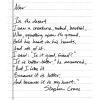
Handwriting Analysis
Source Institutions
In this forensics activity, students will explore the methods that investigators use to confirm the authenticity of handwriting.

Teen Moon: Moon Ooze
Source Institutions
In this activity, learners model how the Moon's volcanic period reshaped its earlier features.
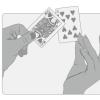
Dealing Signals
Source Institutions
In this activity, use standard playing cards to introduce learners to cellular interactions such as cell to cell recognition and signal and receptor specificity.
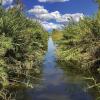
Water Engineering
Source Institutions
In this activity, learners will engineer a water irrigation system. Learners will create a ditch irrigation system -- or an acequia-- to move water with the help of gravity.
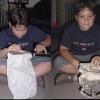
Let's Bag It
Learners observe and discuss a vacuum cleaner as a model of a baghouse, a device used in cleaning industrial air pollution.
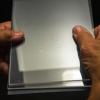
On the Fringe (formerly Bridge Light)
Source Institutions
In this activity, learners trap a thin layer of air between two pieces of Plexiglas to produce rainbow-colored interference patterns.

Backard Bioblitz Bonanza
Source Institutions
In this activity, learners will observe and record living things with in outlined outside space.

Flower Power
Source Institutions
In this activity, learners will experiment with changing flower colors. Learners will investigate the effects of acids and bases on flower colors.
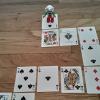
Coding Algorithms
Source Institutions
In this activity, learners will code an algorithm to make it through a maze.
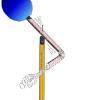
Rocket Pinwheel
Source Institutions
In this activity, learners use simple materials to construct a balloon-powered pinwheel. The pinwheel is a great way to investigate Newton's Third Law of Motion.
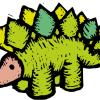
Dinosaur Dig
Source Institutions
This is an activity about dinosaurs, fossils, and the work of paleontologists. Learners use hand tools (paint brushes, scoops, and sifters) to unearth fossil specimens in tubs of birdseed.
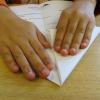
Family Flyers
Source Institutions
In this activity, learners work in teams to build and test paper airplanes. Learners try to fly their airplanes directly on the runway and earn points for accuracy.
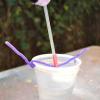
Floating Head Cup
Source Institutions
In this activity, learners watch a figure "magically" float up through the air.
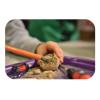
Fossil Rocks
Source Institutions
In this activity, learners will discover how fossils are dug out of the earth by carefully exposing treasures hidden in an artificial rock that is easily made at home.

Whatta Web
Source Institutions
In this activity, learners play a game to simulate the food chain.
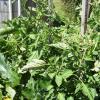
A Balancing Act
Source Institutions
In this plant science activity, learners role play as vegetables and weeds competing for nutrients.

Hoopster: An Airplane Made from Paper Hoops
Source Institutions
This activity provides instructions for making an aircraft that can really fly using a straw and paper hoops!
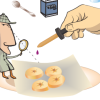
Iodine Investigators!
Source Institutions
In this activity on page 7 of the PDF (Chemistry—It’s Elemental), learners use iodine to identify foods that contain starch.

How does the Atmosphere keep the Earth Warmer?
Source Institutions
In this activity, learners simulate the energy transfer between the earth and space by using the light from a desk lamp desk lamp with an incandescent bulb and a stack of glass plates.
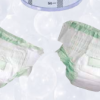
Exploring A Hydrogel
Source Institutions
In this activity on page 10 of the PDF, learners develop an experiment to answer the following question: "How much water can the hydrogel in a baby diaper hold?" Use this activity to explore polymers,
